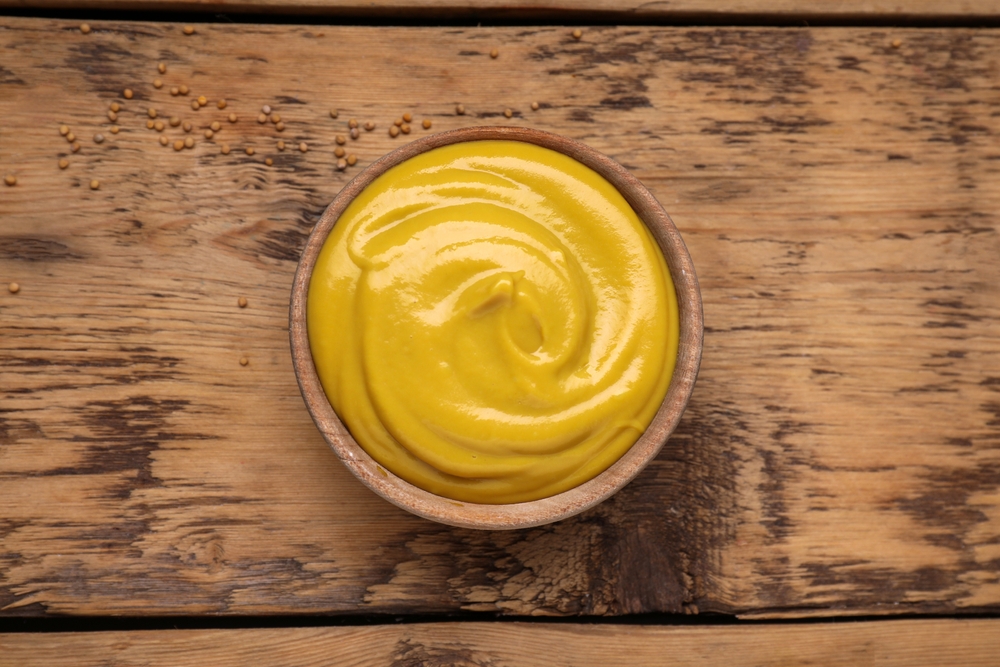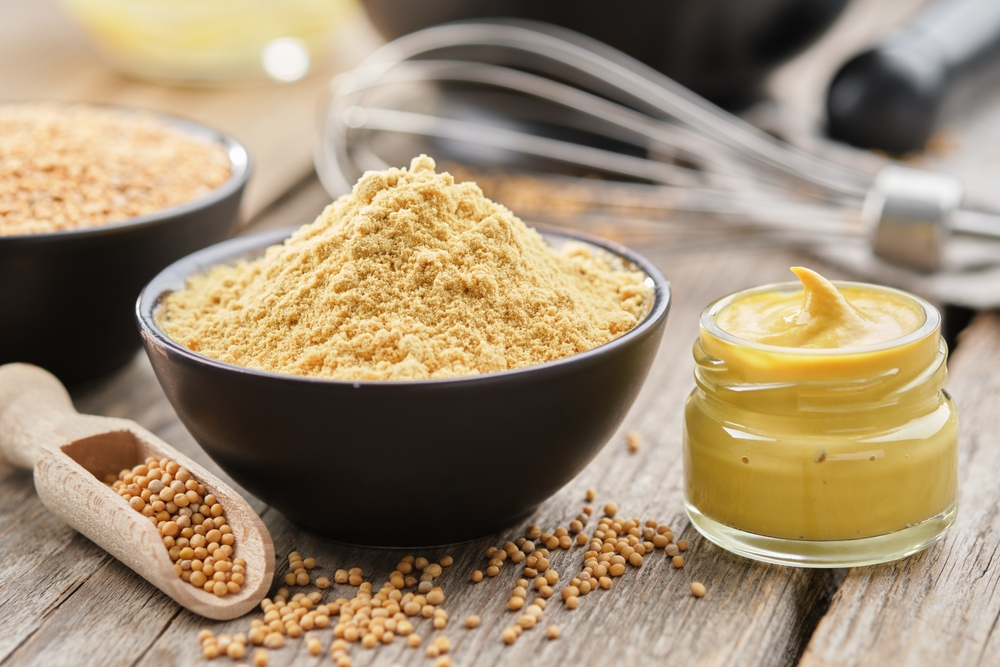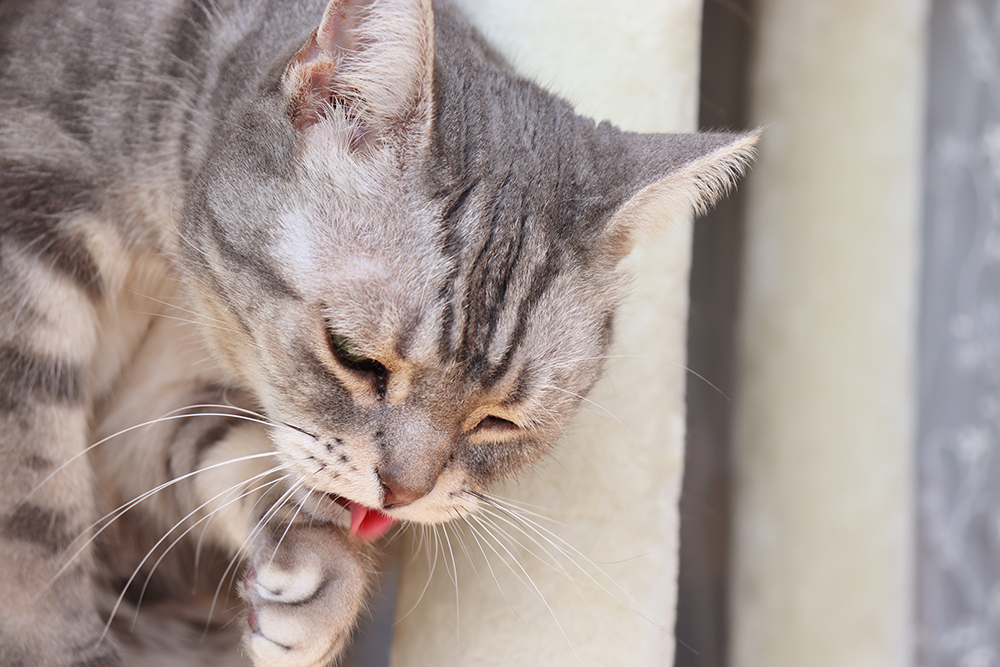Your cat sneaking a bite of that turkey sandwich you accidentally left on the counter might seem harmless, if you don’t consider what’s in it. Many of the toppings, like lettuce and mayonnaise, may be safe for cats to eat in moderation, but Mustard can cause problems, especially if ingested in large quantities, making it unsuitable for your pet’s diet.
It may seem odd that an everyday food additive like mustard could be delicious to humans but problematic for cats, but this is just one of countless examples of foods that are safe for humans but harmful to pets. Let’s explore the scope of the issues involved in explaining why cats should not eat mustard.


Why shouldn’t cats eat mustard?
The main ingredients in most mustards are vinegar (distilled or apple cider vinegar) and mustard seeds. Both are essential to creating mustard’s distinctive flavor, but they can also work together to aggravate your cat’s digestive system. The addition of a few subtle but highly toxic spices, such as garlic and onion powder, can also make for an unpleasant experience.
All mustard varieties contain mustard seeds (often ground into mustard powder), and the different types impart unique flavors and colors to each mustard style. Yellow mustard seeds and powder give traditional yellow mustard its relatively mild flavor, while brown mustard seeds, the strongest, give brown mustard and Dijon mustard their characteristic spicy kick.

Gastrointestinal disorders
The vinegar and mustard seeds in table mustard are not necessarily toxic to cats, but they can have adverse effects if your pet eats too much. While vinegar may have some benefits, its acidity can cause stomach upset.
Similarly, although some compounds in mustard seeds may cause oral and gastrointestinal problems, mustard itself is unlikely to cause any lasting damage. If your cat eats more than a lick of mustard, he may show immediate signs of gastroenteritis, including:
- Excessive drooling
- vomiting
- diarrhea
- Stomach pain
- Loss of appetite
Dry mustard powder is sometimes used to induce vomiting in pets, but it is not recommended. Veterinarians note that this and many other home remedies (liquid dish soap, hot sauce, etc.) are generally contraindicated because there are safer, less harsh, more reliable options available. Do not induce vomiting at home without veterinary supervision.
Mustard Seed Compounds
The compound that gives mustard its pungent aroma and sharp flavor is allyl isothiocyanate. Its unpleasant taste is a defense mechanism to protect the plant from herbivores. This compound is abundant in mustard seeds as well as other similarly spicy plants such as horseradish and wasabi.
Luckily, the repellent properties of mustard seeds are usually effective against many animals, and the flavor, along with the pungent taste of the vinegar in mustard, will make cats try to eat only small amounts unless they completely repel them.

Additional toxic ingredients
While many of the common mustard spices, such as turmeric and paprika, are not harmful to cats, the garlic and onion powders in mustard are highly toxic to cats even in small amounts. Garlic, onions, and other alliums are among the most toxic everyday foods for cats.
Signs of Garlic and Onion Toxicity
Symptoms of garlic poisoning begin with gastroenteritis, including vomiting, diarrhea and abdominal pain, which then progresses to oxidative damage to your cat’s red blood cells, resulting in the following symptoms:
- Fast or difficult breathing
- Increased heart rate
- Pale mucous membranes
- Apathy
- Dark urine
- Weakness and collapse
Cats are more susceptible to hemoglobin damage than other animals and can easily become poisoned after ingesting less than 1/8 teaspoon of garlic powder. Fortunately, most mustard recipes use only 1/8 to 1 teaspoon of garlic powder per cup of mustard. Cats only lick it a few times, so it’s unlikely they’ll ingest a lot of garlic in one go.
However, because it takes time for the bone marrow to replace damaged red blood cells, hematological damage is cumulative, and if your cat ingests small amounts of garlic and onion every day, the damage is likely to be greater.

What to do if your cat eats mustard?
Check how much mustard your cat has eaten – if they have only licked it a few times, offer them fresh water and observe them for signs of distress – it contains a number of compounds that can cause stomach upset, so your cat may vomit or have diarrhea, but will usually recover quickly within a few days.
If your cat has eaten too much and is showing signs of severe distress or ongoing vomiting and diarrhea, contact your vet or a pet poison control hotline. Online cat telemedicine services are also available to give you immediate advice, often free of charge, and help you determine whether immediate medical attention is required.
💛 😺 Consult a vet online without leaving the comfort of your couch!

If you want to speak to a vet but can’t get there, PangobetThis is an online service. Consult a vet online Get the personalized advice your pet needs at an affordable price.


Conclusion
Although cats can be adversely affected by vinegar and mustard seeds, it’s unlikely that eating mustard will result in more than temporary vomiting and diarrhea. Cats generally don’t like to eat mustard because of its strong smell and flavor, so overdosing is rare. Still, it’s important to get into the habit of protecting your sandwiches, burgers, and hot dogs so you don’t have to worry about your cat eating more than they can handle.
Featured image credit: New Africa, Shutterstock




